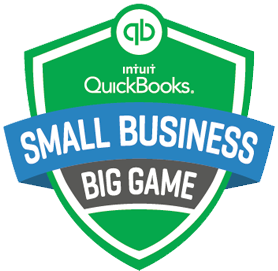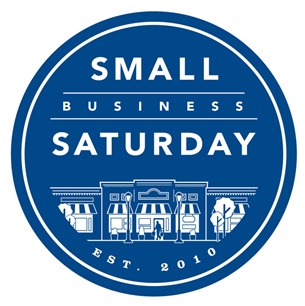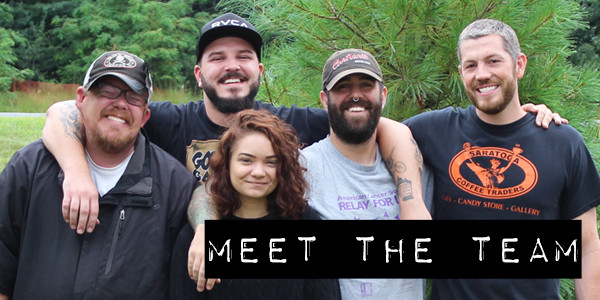
Photo: Death Wish Coffee Company
You all know what it’s like to go down an Internet rabbit hole – it happens all the time. But it’s weird for me to take a meandering online journey of my own making each week when selecting just the right post from JacoBLOG’s nearly 20-year archives for Throwback Thursday. Each week, I stay with the current month, but pick a year of the past. When I click on “search” on a selected year, I hold my breath for a moment, not always thrilled by what I may read. And the further back I go (like old airchecks), the more precarious a journey it often turns out to be.
Today is a 9-year trip back in time to 2016 and the aftermath of Super Bowl 50, a victory by Payton Manning’s Denver Broncos over the Cam Newton-led Carolina Panthers. The halftime show for that game: a mishmash of Coldplay, Beyoncé, Bruno Marks, Mark Ronson, and the University of California Marching Band.
But the blog post is about a small business that had its breakout moment in “The Big Game” – Death Wish Coffee Company. In prepping today’s #TBT, I come to find out the company is still going. From what I can tell, there have been no RIFs or changes at the top. CEO and founder, Mike Brown (pictured below), is still ruling the DWCC’s over-caffeinated staff. If anything, the company’s presence has grown over the last decade or so.
A visit to the website reveals an impressive company reflection that’s more than a brochure, better than any radio company site I’ve ever encountered. It is content-rich – and is wisely billed as an escape from “the daily grind and read killer content” (smart, right?). The site has everything (except annoying ads): the chance to subscribe to the “Society of Strong Coffee” where you can win “free shit” while you enjoy the brew, a blog, merch, recipes, TikTok videos, and of course, the branded podcast (hello, Dave Beasing), “Fueled by Deathcast.”
an escape from “the daily grind and read killer content” (smart, right?). The site has everything (except annoying ads): the chance to subscribe to the “Society of Strong Coffee” where you can win “free shit” while you enjoy the brew, a blog, merch, recipes, TikTok videos, and of course, the branded podcast (hello, Dave Beasing), “Fueled by Deathcast.”
In short, it’s everything you’d hope for in an innovative business that started small and has earned its niche in the coffee space. While Dunkin’ continues to adjust and morph, and while Starbucks tries to turn its fortunes around, Mike Brown’s DWCC knows its mission and lives and breathes it in all their branded activities.
Yup, I wish every smaller, independent broadcaster – many of whom are doing impeccable work during another so-called “inflection point” for radio – could be inspired by how Death Wish has taken on the big boys – and not just survived, but thrived.
February 2016
On this blog, we’ve looked back at the Super Bowl from a marketing and advertising perspective. Much of the focus has logically been on the national advertisers like Colgate, Budweiser, Coke, Taco Bell, and Doritos – all of whom are spending millions to have presence in the Big Game.
Today, we’re highlighting Death Wish Coffee Company whose spot will run during the third quarter of Sunday’s contest between the Panthers and Broncos. No matter the outcome, this little business enterprise fueled on overly caffeinated coffee will undoubtedly come away a winner.
What – you’ve never heard of Death Wish? Well, soon you will. You can see their Super Bowl spot here:
So how did this happen, because Death Wish Coffee Company is not a major brand, it’s not a household name, and they are not a major league player on social media?
 This upstart little coffee business may be unknown to you now, but they’ll earn plenty of buzz this weekend and beyond, thanks to “Small Business Big Game,” a contest sponsored by Intuit (the company that makes QuickBooks and TurboTax).
This upstart little coffee business may be unknown to you now, but they’ll earn plenty of buzz this weekend and beyond, thanks to “Small Business Big Game,” a contest sponsored by Intuit (the company that makes QuickBooks and TurboTax).
The prize is one that every small business in America would covet – a free spot in Super Bowl 50. For Death Wish (positioned as “the world’s strongest coffee”), their 11 employees will now be moving over to make room for new hires. Their slogan – “Fiercely Caffeinated” might become a memorable catch phrase (it sure is for me!).
For Intuit, their “Small Business Big Game” concept is a clever and effective way to shine the light on small businesses, their creativity, and their resourcefulness. To win the honor, Death Wish beat out 15,000 other entries.
This campaign is even more dramatic and attention-getting than American Express’ effort, “Small Business Saturday,” which started back in 2010. Just a few years later, and it netted an estimated $14 billion in revenue this past November. Again, this is another indication of the strength and power of local companies that merge innovation, imagination, and hard work to build their brands.
past November. Again, this is another indication of the strength and power of local companies that merge innovation, imagination, and hard work to build their brands.
Radio can learn a lot from these exercises in supporting small businesses, because by and large, that’s what most radio enterprises are. Aside from the handful of big behemoth companies at the top of the radio heap, it’s the small radio businesses that typify the industry. Hundreds and hundreds of radio companies are, in fact, small businesses.
And our experience with state broadcaster associations in places like Oklahoma, Wisconsin, Kentucky, North Carolina, and of course, Michigan, is an ongoing reminder that it’s the smaller market stations that are the lifeblood of the radio industry. They show up, they know everyone, they join or head up organizations like Rotary, and they become part of the fabric of their communities.
Radio at its best is a “windshield medium,” meaning that it is most effective when its ads sync up with listeners on the move in local markets like Cedar Rapids, Savannah, Fresno, and Burlington, driving from Point A to Point B. Given the “big box” store phenomenon that has systematically wiped out thousands of small businesses these past few decades, radio is in a position to support these small, hometown enterprises while helping its own revenue generating efforts.
The radio industry can also learn from the impact that a small company like Death Wish Coffee Company can have, not just this Sunday on the Super Bowl, but in the way they cleverly use the digital tool kit supplied by companies like Amazon, making it possible for a small group of employees to make a lot of noise and become a well-known brand throughout the world.
And yet they can still establish a personal feel that you just can’t get from a Starbucks or a Dunkin’ Donuts. The Death Wish story is more evidence that as the Internet has spawned massive tech companies like Apple and Google, it has also enabled a guy named Mike Brown (far right) and his small team in Round Lake, NY, to make waves that will reverberate across the globe on Sunday.
A small radio company can have powerful impact in its home markets. A small market radio station can provide more resonance to its hometown audience than Pandora, Spotify, or YouTube. And local radio can help neighborhood businesses start up, get established, and grow.
It’s not lost on me that the Death Wish employee roster is the size of the number of players that will be on the field on each side of the ball in Super Bowl 50. Eleven people can move a football down a field, just as small groups of dedicated, inspired, and focused individuals can work together to build lasting, meaningful businesses that matter.
From small things, big things one day come.
I’ll take mine black, by the way.
Thanks to Rob Basile, my Canadian radio buddy, for bringing the Death Wish Coffee Company story to my attention.
Originally published by Jacobs Media








